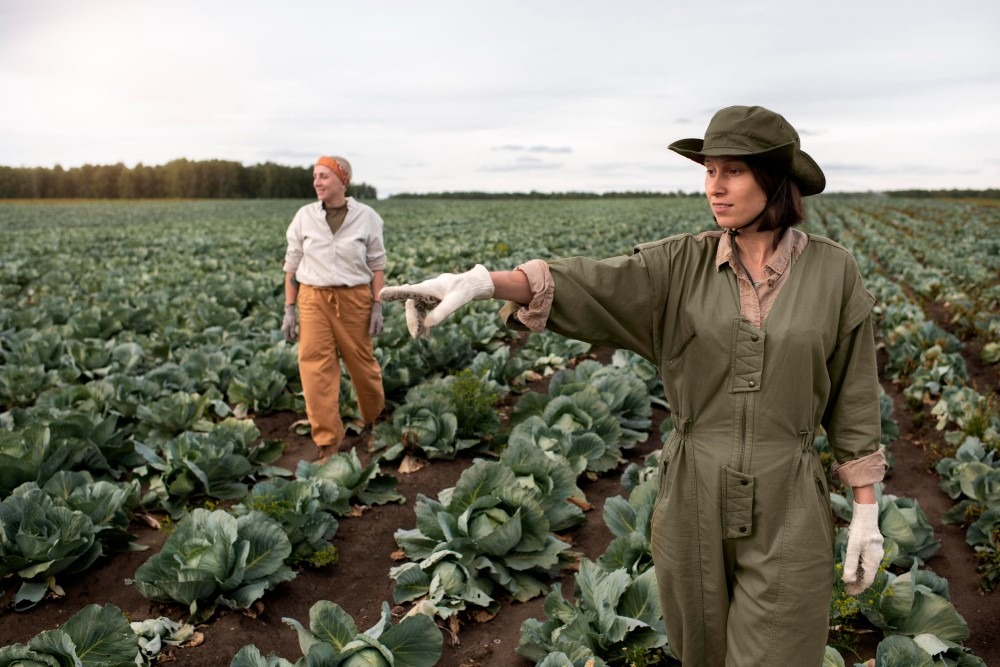Introduction
The Australian agriculture sector is undergoing a remarkable transformation, driven by technological innovations and a growing emphasis on sustainability. With the increasing challenges posed by climate change, population growth, and the need for efficient resource management, Australian farmers are turning to cutting-edge technologies to ensure a resilient and prosperous future.
Precision Agriculture: Revolutionising Farming Practices
Enhanced Crop Management
Precision agriculture is revolutionising how Australian farmers manage their crops. Using GPS technology, satellite imagery, and drones, farmers can monitor crop health, soil conditions, and pest activity with unprecedented accuracy. This data-driven approach allows for targeted interventions, optimising the use of water, fertilisers, and pesticides, ultimately leading to higher yields and reduced environmental impact.
Smart Irrigation Systems
Water scarcity is a significant concern in Australia, making efficient irrigation crucial for sustainable farming. Smart irrigation systems, equipped with sensors and IoT technology, enable real-time monitoring of soil moisture levels and weather conditions. These systems automatically adjust watering schedules, ensuring that crops receive the right amount of water at the right time, minimising waste and conserving this precious resource.
Robotics and Automation: Boosting Efficiency and Productivity
Automated Machinery
The adoption of robotics and automated machinery is enhancing efficiency and productivity on Australian farms. From autonomous tractors to robotic harvesters, these machines perform repetitive and labour-intensive tasks with precision and speed. This reduces the physical strain on farmers and allows them to focus on higher-value activities such as crop planning and management.
Dairy Farming Innovations
In the dairy sector, automated milking systems are becoming increasingly popular. These systems use sensors to monitor the health and productivity of each cow, ensuring optimal milk production. Automated feeders and cleaning systems further streamline operations, improving overall efficiency and animal welfare.
Biotechnology: Enhancing Crop Resilience and Quality
Genetically Modified Crops
Biotechnology is playing a pivotal role in developing genetically modified (GM) crops that are more resilient to pests, diseases, and extreme weather conditions. Australian farmers are leveraging GM technology to grow crops that require fewer chemical inputs and have higher nutritional value. This not only improves food security but also supports sustainable farming practices.
CRISPR Technology
CRISPR, a revolutionary gene-editing technology, is being utilised to enhance crop traits such as drought tolerance and disease resistance. By precisely modifying specific genes, researchers can create crop varieties that thrive in challenging Australian environments, ensuring consistent yields and reducing the reliance on chemical treatments.
Digital Platforms: Connecting Farmers and Optimising Operations
Farm Management Software
Digital platforms and farm management software are empowering Australian farmers to make informed decisions. These tools provide real-time data on crop performance, weather forecasts, and market trends, enabling farmers to optimise their operations. By centralising information, farmers can streamline their workflows, track expenses, and improve overall productivity.
Blockchain for Supply Chain Transparency
Blockchain technology is being adopted to enhance transparency and traceability in the agricultural supply chain. By recording every transaction and movement of goods on a decentralised ledger, blockchain ensures the authenticity and quality of agricultural products. This builds trust with consumers and opens up new markets for Australian produce.
Sustainable Practices: Reducing Environmental Impact
Regenerative Agriculture
Regenerative agriculture practices are gaining traction in Australia as a means to restore soil health and biodiversity. Techniques such as cover cropping, crop rotation, and reduced tillage help sequester carbon, improve soil fertility, and reduce erosion. These practices not only enhance farm resilience but also contribute to mitigating climate change.
Agroforestry
Integrating trees and shrubs into agricultural landscapes, known as agroforestry, offers multiple benefits. Trees act as windbreaks, reducing soil erosion and providing habitat for beneficial wildlife. Additionally, agroforestry systems can improve water retention and increase carbon sequestration, making farms more sustainable and productive.
Conclusion
The future of Australian agriculture is bright, with technology driving significant advancements in sustainable farming practices. Precision agriculture, robotics, biotechnology, digital platforms, and sustainable practices are transforming the way farmers work, enhancing efficiency, productivity, and environmental stewardship. As Australia continues to embrace these innovations, its agriculture sector is well-positioned to meet future challenges while ensuring a sustainable and prosperous food system for generations to come.
External Resources
- Australian Government Department of Agriculture, Fisheries and Forestry: Innovations in Agriculture
- CSIRO: Future Science and Technology for Agriculture







